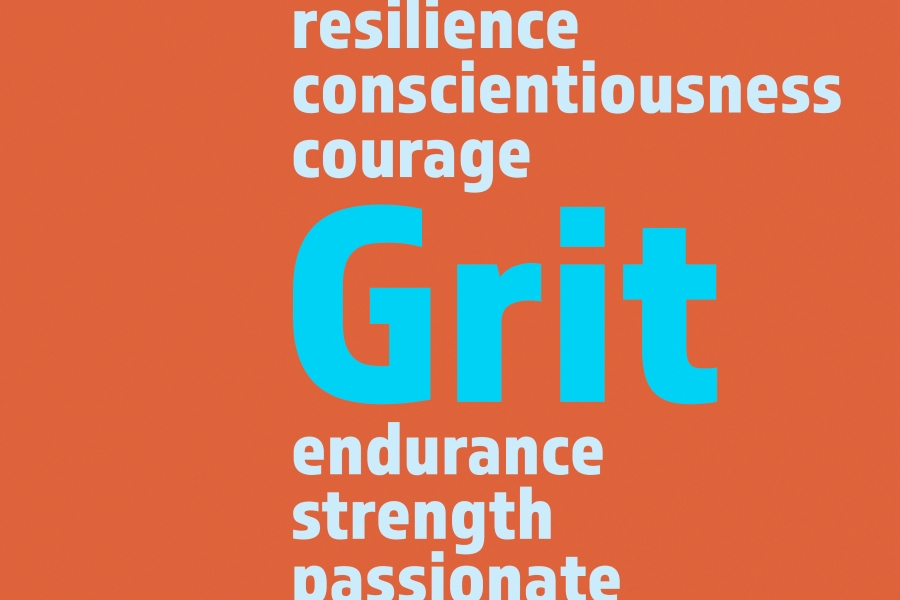
A questionable study setup should not be allowed to dictate character education
 Grit is education’s newest buzzword — and when discussing it a few weeks ago, I was unaware that it’s the field’s latest bandwagon. Angela Lee Duckworth, an academic and psychologist at the University of Pennsylvania, coined the term almost a decade ago. But in 2016, after her self-help book “Grit: The Power of Passion and Perseverance” came out, the use of the term in academia skyrocketed. And like most fads, the popular literature surrounding grit sung its praises.
Grit is education’s newest buzzword — and when discussing it a few weeks ago, I was unaware that it’s the field’s latest bandwagon. Angela Lee Duckworth, an academic and psychologist at the University of Pennsylvania, coined the term almost a decade ago. But in 2016, after her self-help book “Grit: The Power of Passion and Perseverance” came out, the use of the term in academia skyrocketed. And like most fads, the popular literature surrounding grit sung its praises.
When doing initial research for my first column about grit, I saw no opposition to Duckworth’s philosophy. After all, which educator would want to come out as anti-grit? It’s like saying you don’t like pizza or puppies — something that would warrant backlash by those eggs on Twitter. It took a lot of internet sleuthing to find a reputable person in education who publicly challenged Duckworth’s ideas, but I finally landed on an essay by Mike Rose, a faculty member at the UCLA Graduate School of Education and Information Studies. As early as 2014, Rose was openly critical of the language and wary of the hype surrounding grit.
One of the things that bothered Rose was the approach Duckworth took to study grit. “The original studies rely on self-report questionnaires, so can be subject to error and bias,” Rose wrote. “The studies are correlational, so do not demonstrate causality. The exceptional qualities of some of the populations studied can create problems for factor analysis.”
Very few people (myself included) read Duckworth’s original scholarly articles, in which her sample populations included Penn undergraduates, West Point cadets and Spelling Bee champions — people who aren’t necessarily representative of the average American student. And while Duckworth very briefly acknowledged her questionnaire approach in her TED Talk, her methodology was far from ideal. Such studies are known to be iffy at best and completely extrapolative at worst.
But Duckworth did not have reservations about her data. Essentially crafting the modern conversation surrounding character education in schools, she managed to market her discoveries without really telling people how she got there. And there’s something almost unethical in the whole situation. People who use self-report surveys know to report their findings with caution. And if anything, they have a disclaimer about their claims (you can see it at the bottom of taste-testing advertisements all the time). But Duckworth did no such thing.
And suddenly, the whole discourse surrounding grit begins to fall apart. After all, character education isn’t targeted toward the rich and privileged — those students have all the resources needed to be gritty. These sorts of ideas are promulgated in communities opposite of the average Ivy League student’s. Duckworth’s entire claim would blow to dust if people realized she’s using the elite to shape character education for the masses. While the socioeconomic information of her subjects is not available to the public, it’s safe to say that her sample was not representative of the average high school or college dropout. These young adults can persevere because there’s nothing else holding them back.
Rose strongly takes on this divide: “Anyone who has worked seriously with kids in tough circumstances spends a lot of time providing support and advice, and if grit interventions can provide an additional resource, great. But if as a society we are not also working to improve the educational and economic realities these young people face, then we are engaging in a cruel hoax, building aspiration and determination for a world that will not fulfill either.”
From personal experience, the grit bandwagon is an easy one to jump on — and one that’s even easier to jump off. There’s a certain amount of integrity needed when judging, advising and prescribing qualities to people, especially students — and in Duckworth’s study, this ideal was certainly compromised. One thing is clear: Our current issue is not making people “gritty”; it’s shrinking the divides that make it hard for people to persevere in the first place.
Written by: Samvardhini Sridharan — smsridharan@ucdavis.edu
Disclaimer: The views and opinions expressed by individual columnists belong to the columnists alone and do not necessarily indicate the views and opinions held by The California Aggie.



